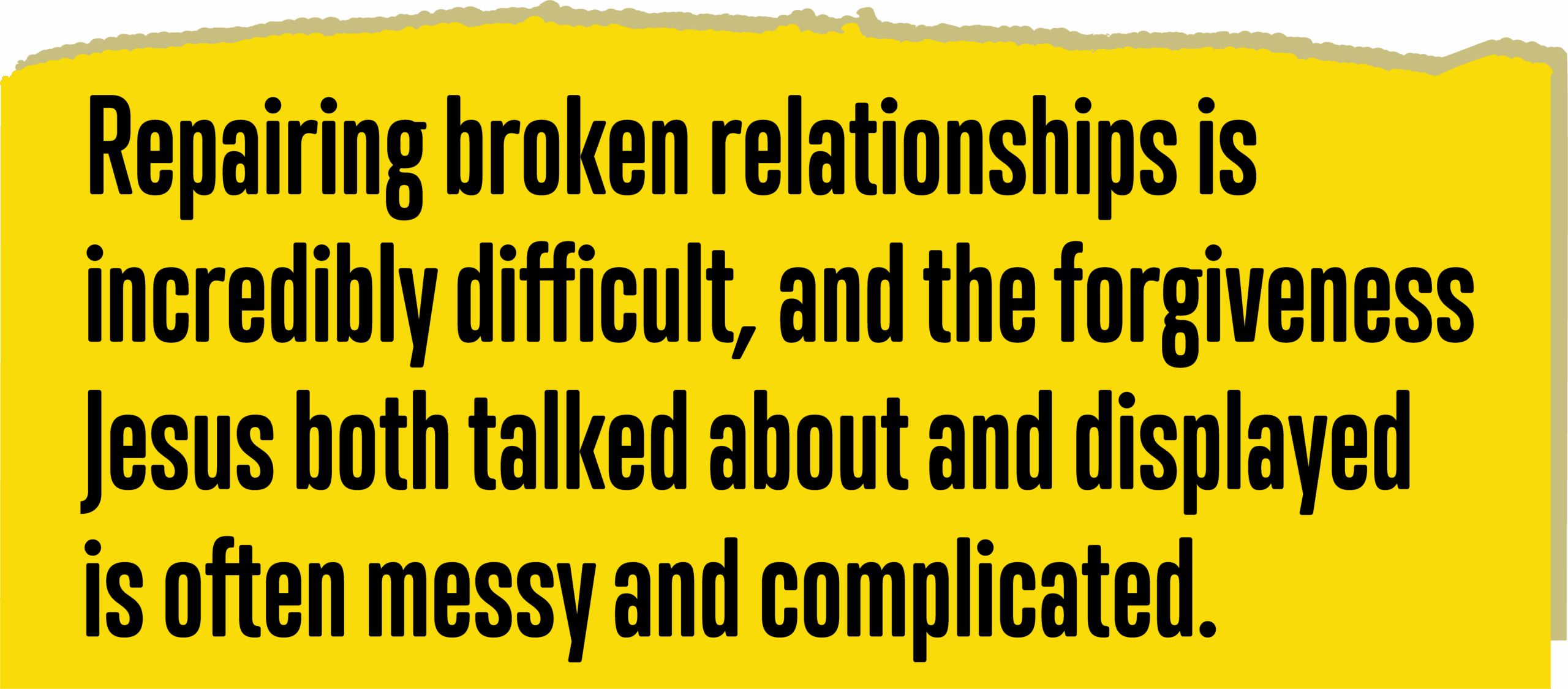From betrayal and abandonment to tensions from distance and lack of trust, Jesus’ relationships weren’t all perfect, but we can learn from how he navigated the strains.
We were thinking about what Jesus’ relationships with friends and family might have looked like and were surprised by what we found. Pastel paintings and imagery of Jesus so often depict him having a peaceful, wonderful time with his loved ones, but a closer look at the text paints a more complex picture.

Shortly after beginning his public ministry, Jesus went back to his hometown to share his message. A whole crowd gathered to hear him speak. By the time he was done speaking, they were calling to have him killed. They even tried to take matters into their own hands and throw him off a cliff. If we read this story too quickly, we might miss the fact that the very people trying to kill him grew up with him. They would have been friends and neighbors that knew Jesus when he was a boy. And that’s not the only example of good relationships gone sour. One of Jesus’ closest friends gave him up to the authorities in exchange for money, and another denied ever knowing him while he was being arrested. His family doubted him, and his own mother likely felt the relational strains that came part and parcel of a full-time traveling ministry.

The point is, Jesus’ relationships were far from perfect. Betrayal, doubt, insecurity, disagreement and distance muddied the waters even for Jesus. He couldn’t avoid relational stresses, but he did give us a model for how to respond to them and work toward restoration. His model? Radical patience and forgiveness.

It might have been best illustrated in a story he told about a father and son. The son asked for his inheritance while the father was still alive—he valued the money more than the relationship. The father obliged, gave the money, and the son went off and spent it until he found himself completely destitute with nothing left. He resolved to return home to his father to humbly ask for a job—not to reclaim his spot as son, but as one of many hired hands. As he was walking up to the house, the father saw him from afar and ran out to embrace him. To forgive him. To welcome him home as a son.

Repairing broken relationships is incredibly difficult, and the forgiveness Jesus both talked about and displayed is often messy and complicated. But know if you feel the pang of hurt in your relationships, Jesus did too, and take encouragement in his resolve to repair what was broken.
**If you are in an abusive relationship, please seek help. Jesus’ call to forgive should not be wrongly used to manipulate people into staying in abusive relationships. Seek out safety first.

